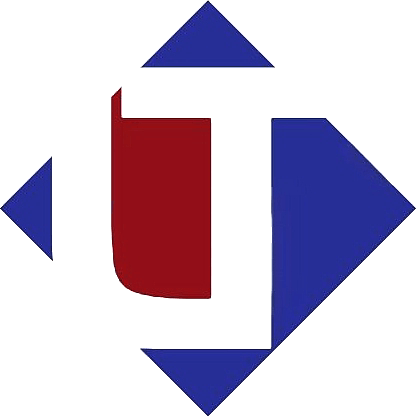Introduction

In the world of electrical engineering, precision and efficiency are key factors in ensuring the reliability and performance of electrical systems. One tool that plays a crucial role in achieving this is the Busbar Bending Machine. This highly specialized piece of equipment is designed to bend busbars, which are essential components in electrical systems that distribute electrical power. In this article, we will explore the functionality, benefits, and various types of busbar bending machines, as well as why they are indispensable in modern electrical applications.
What is a Busbar Bending Machine?
A Busbar Bending Machine is a mechanical device designed to shape busbars into precise angles and forms to suit various electrical applications. Busbars themselves are copper or aluminum bars used to conduct electricity in switchgear, distribution boards, substations, and other electrical systems. Given their critical role in conducting electrical power, busbars must be bent with high precision to ensure optimal performance.
The busbar bending machine works by applying force to the busbar, allowing it to be bent into the desired shape, whether that be a simple angle, an arc, or a more complex curve. The machine typically includes various adjustable settings for bending angle, length, and pressure, ensuring that the busbars meet the specifications required for safe and efficient operation.
Why is a Busbar Bending Machine Important?
-
- Precision and Accuracy: Busbars must be bent with utmost precision to prevent electrical faults. A high-quality busbar bending machine ensures that bends are made to exact specifications, reducing the risk of system failure due to incorrect angles or improper alignment.
-
- Increased Efficiency: Traditional manual bending methods can be time-consuming and prone to error. With a busbar bending machine, operators can achieve consistent and accurate bends in a fraction of the time, significantly increasing productivity.
-
- Improved Safety: Accurate bending of busbars is crucial for safety in electrical systems. A busbar bending machine reduces human error, ensuring that busbars fit perfectly within electrical panels and enclosures. This, in turn, minimizes the risk of electrical hazards and short circuits.
-
- Versatility: Modern busbar bending machines are versatile and can handle various materials, including copper, aluminum, and even steel, making them suitable for a wide range of electrical applications.
Types of Busbar Bending Machines
There are several different types of busbar bending machines available, each designed to meet specific needs in the electrical industry. Some of the most common types include:
-
- Manual: These machines require the operator to manually adjust the settings and apply pressure. While they are generally more affordable, they are less efficient and require more time to operate.
-
- Semi-Automatic : Semi-automatic machines offer a combination of manual and automated features. The operator may need to load the busbar and make initial adjustments, but the machine automatically completes the bending process.
-
- Fully Automatic : Fully automatic machines are the most advanced and efficient. These machines can perform a range of bending tasks with minimal human intervention, making them ideal for high-volume production environments.
-
- CNC : CNC (Computer Numerical Control) busbar bending machines are the most precise and programmable. They allow operators to input specific bending instructions via a computer interface, ensuring that every bend is made to perfection.
Key Features of a High-Quality Busbar Bending Machine
When choosing a busbar bending machine, it is important to consider several key features that contribute to its overall quality and performance:
-
- Adjustable Bending Angles: A good busbar bending machine should offer a range of bending angles, enabling it to accommodate different types of busbar configurations.
-
- Durability and Build Quality: Since busbar bending involves high levels of force, the machine must be made of durable materials to withstand the stress over time.
-
- User-Friendly Interface: Whether manual or automatic, the machine should be easy to operate, with clear settings and controls for the operator.
-
- Accuracy: The precision of the bends is the most critical factor. Machines with digital readouts and adjustable settings provide better control over bending accuracy.
-
- Capacity: Consider the size and thickness of the busbars that the machine can handle. A high-quality machine should be able to work with various sizes of busbars.
Applications of Busbar Bending Machines
Busbar bending machines are indispensable in many industries, including:
-
- Electrical Power Distribution: In power plants, substations, and electrical panels, busbars are used to distribute electrical power to various circuits. A busbar bending machine ensures that these bars fit perfectly in tight spaces.
-
- Construction and Infrastructure: In large buildings and industrial facilities, busbars are used to manage electricity distribution. Busbar bending machines ensure that busbars are bent to fit these specific installation requirements.
-
- Renewable Energy: Busbars are integral to solar power systems, wind turbines, and other renewable energy technologies. Busbar bending machines are used to create custom-shaped busbars to suit these systems.
-
- Switchgear Manufacturing: Busbars play a crucial role in switchgear equipment. Bending machines ensure that busbars are made to fit the precise measurements needed in these systems.
Conclusion
The Busbar Bending Machine is a cornerstone in the production of electrical systems, ensuring that busbars are bent accurately and efficiently to meet the demands of modern electrical installations. Whether for power distribution, construction, renewable energy, or switchgear manufacturing, a reliable busbar bending machine enhances both the safety and performance of electrical systems. As industries continue to evolve, investing in the right busbar bending machine can lead to increased productivity, improved precision, and a safer electrical environment.
For more information about busbar bending machines and how they can improve your electrical system, contact us today!

